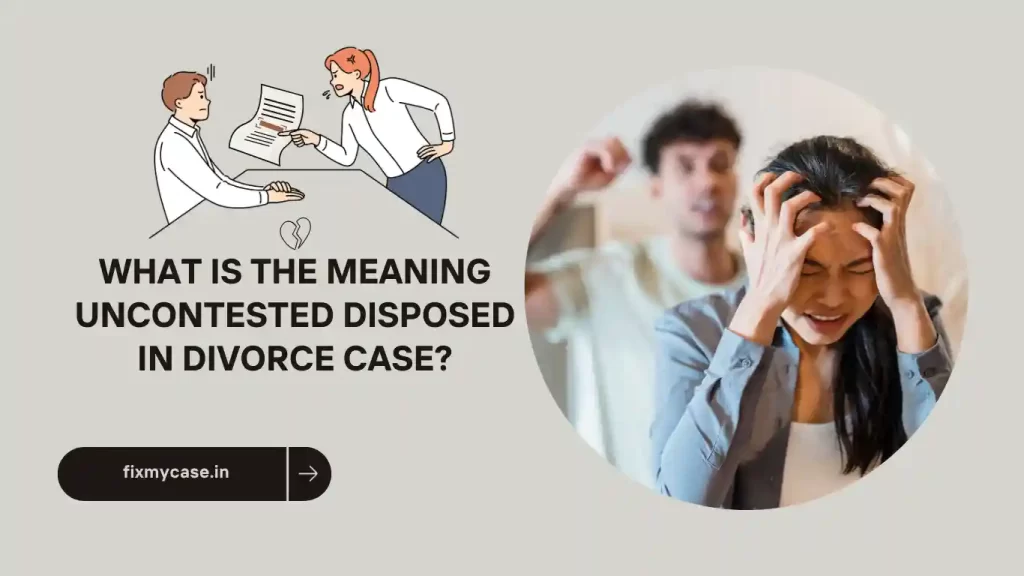The relevant law governing divorce proceedings in India is the Hindu Marriage Act, 1955 for Hindu marriages, the Special Marriage Act, 1954 for inter-faith marriages, and the Indian Divorce Act, 1869 for Christian marriages.
When a divorce case is pending in court, the case is referred to as uncontested disposed. This means that the case does not require a trial.
Authorize a lawyer to handle your divorce case and he will handle your case in court on your behalf with the permission of the court. If he does not appear in court when his presence is required in court, the case may be disposed of uncontested on the grounds of lack of interest in the case.
If you lose contact with the lawyer who is handling your case, or if you have problems with the lawyer and you do not contact the lawyer, or if your lawyer dies, he will fail to handle your case and your case will remain without any action in court. If you fail to appear in the case and take up the problem of your case, the judge will dismiss your case by ordering that your case is disposed of uncontested because you are not interested in your case.

Because you have not come forward to conduct your case, the case will be dismissed as uncontested disposed on the basis that the plaintiff has failed to conduct the case without showing interest in the case. Or the court will assume that your problem is solved. The judge will decide that you did not appear in court because the problem has been resolved.
The court will expect the attendance of the plaintiff in the court case at the time of trial and when the plaintiff does not appear in the court the judge in the court will assume that he is not interested in the case. Based on this, the case will be dismissed from the court based on the order of uncontested disposed.
Cases are dismissed in Indian court for various reasons as mentioned above, so it is important to consult a local lawyer well versed in family law to understand the requirements and procedures of a divorce case.
